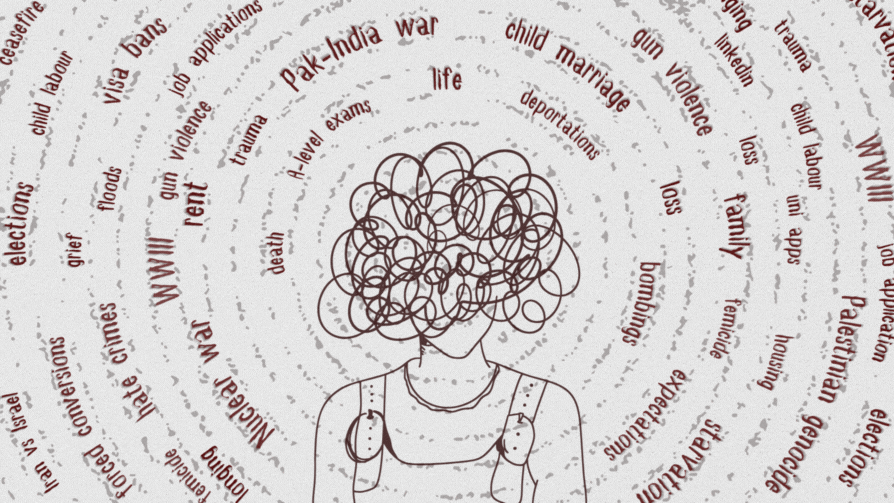Osman Khalid Butt calls out focus on Noor Mukadam’s ‘privilege’ after SC verdict
Actor Osman Khalid Butt has taken to social media in the wake of the Supreme Court’s decision to uphold Zahir Jaffer’s death sentence in the brutal 2021 murder of Noor Mukadam to urge a reframing of how we understand justice in this case, and more broadly, in Pakistan’s treatment of gender-based violence.
Sharing his thoughts on X, Butt challenged the widespread assumption that Noor’s socio-economic background was what ultimately secured the landmark verdict.
“When discussing the Supreme Court ruling, it’s incredibly important you centre the conversation on the perpetrator’s privilege, not Noor’s,” he wrote. “The assumption that both parties were ‘equally powerful’, and that Noor’s background alone secured her justice, is not only incorrect, it takes away from a landmark judgment.”

Butt, who was a friend of Noor’s and has been a vocal supporter of her family’s calls for justice since the case first came to public attention, highlighted that what makes the judgment remarkable is not the identity of the victim but the social status of the perpetrator, and the fact that it did not shield him.
“That Zahir’s conviction was upheld despite his family’s reach and legal resources is the real story,” he asserted. “A powerful precedent has been set: that no matter how influential the criminal’s family may be, no leniency will be shown when it comes to gender-based violence. As a lawyer friend said: in a majority of cases, it’s not the background of a victim that prejudices a case, but that of the perpetrator — who are then let off.”
The decision to uphold the death sentence, announced nearly four years after Noor’s murder, has been widely celebrated as a rare victory in a system where the wealthy and powerful often evade consequences. Across social media, citizens, activists, and celebrities have voiced relief and solidarity, praising the perseverance of Noor’s father, Shaukat Mukadam, and the legal team who fought the appeal.
Butt delved deeper into the legal aspect of the case, noting that “this wasn’t a straightforward or inevitable verdict”.
He explained that Jaffer’s defence team had mounted a comprehensive case, aiming not for a reduced sentence, but complete acquittal, exploiting every possible legal loophole. “Also, unless you closely followed the proceedings or were present at the SC, it’s important to understand that this wasn’t a straightforward or inevitable verdict. The defence had prepared an exhaustive, well-prepared case — for Zahir’s acquittal, mind you, not for a reduced sentence — every legal loophole that could be exploited, was.”
He added, “I have strong objections to some of the statements made by the SC bench (which I’ll discuss separately), however, the court upheld the death sentence despite minor procedural and protocol flaws in evidence recovery. Justice prevailed over red tape protocols.”
During the trial, judges made demeaning comments about Noor for spending time alone with Jaffer, with Justice Hashim Kakar adding on Tuesday that it was “against our values”, according to AFP.
Farzana Bari, a prominent women’s rights advocate who attended the hearing, said such attitudes perpetuate the idea that men have some “legitimate right to detain” women — a notion she called “harmful and regressive.”
“Such judicial attitudes contribute to a long and exhausting struggle for justice, often leading victims to lose hope and give up along the way,” Bari told AFP.
Despite these flaws, Butt celebrated what the ruling now represents for future cases. “This case will now be cited as a source, referenced and used as a precedent in all future cases of such a heinous nature,” he wrote. “It is a roadmap for all victims who might be silenced or dismissed. Recognise and celebrate that.”
‘Not discrediting influence’
Butt received a mix of support and criticism in the comments of his post. Some users argued that he was downplaying Noor’s privilege and that if she had come from a less influential family, justice would not have been served. One user wrote, “Sorry, both were from influential families. If God forbid Noor was from a lesser family, she will never get justice, and it is a fact!”
In response, Butt assured, “And once again, I am not discrediting the influence, public pressure and media attention that led to Zahir’s conviction. Your scepticism at the workings of our justice system is completely valid. Legal reforms are the need of the hour. However, let’s please also not claim that being from a lesser family means no justice will ever be served.”

He went on to list examples where justice had been meted out in the absence of elite connections: “Please read up on Ali Akhtar (sentenced to death for the rape and murder of orphan Mazhar Fatima, 2023), Muhammad Irshad (awarded the death sentence for the rape and murder of a six-year-old, 2020), Sajjad Ahmad (life imprisonment, 2021), Aqsa Bibi’s case (three perpetrators sentenced to death, 2022), Zainab Ansari (whose rapist and murderer Imran Ali was executed in 2018 after public outcry).”
Another critic replied: “Let’s not get carried away. How many other victim cases have you followed? How many of them got consistent media attention?”

To this, Butt clarified, “Brother where have I written that Noor’s family’s influence, or media attention, had nothing to do with the verdict being upheld? Noor’s case became a symbol of the fight against femicide, like Zainab before her. I said ‘background alone..’ and here’s my two cents on why your argument is incorrect: If Noor’s ‘privilege’ guaranteed justice, we wouldn’t have seen how hard her family and close friends had to fight, or how long this dragged through every level of the justice system. It wasn’t privilege that carried this case, it was relentless pressure, public demand for accountability, and a strong prosecution.”
On media attention and public pressure
There is no denying the significant role that public and media attention played in the Noor Mukadam case.
From the outset, the brutal nature of her murder sparked outrage across the country, with vigils held in her honour and her name becoming a rallying cry at protests against gender-based violence.
Noor’s influential network of friends helped bring sustained visibility to the case, most notably through the “Justice for Noor” page on X and Instagram, which was launched shortly after her murder. The page, run by her close friends, became a central platform for disseminating updates, mobilising public support, and maintaining pressure on the justice system.
This relentless advocacy was coupled with the consistent efforts of Noor’s family, particularly her father, Shaukat, who became a symbol of quiet perseverance. He regularly attended court hearings and remained publicly steadfast in his belief that justice would prevail.
Together, this combination of media visibility, community mobilisation, and familial determination created a momentum that was difficult to ignore.
Still, the case stands out precisely because of how rare such outcomes are in Pakistan, where crimes against women often go unreported, unprosecuted, or unresolved.
While Pakistan sees thousands of cases of gender-based violence annually, very few reach trial — and fewer still result in convictions. The Human Rights Commission of Pakistan and other watchdogs have long highlighted the glaring gaps in justice, especially for women from underprivileged backgrounds or marginalised communities.
There have been numerous instances where cases were settled outside the court system, often due to societal pressures or the influence of powerful perpetrators. Such cases highlight how rare it is for a case like Noor’s, involving a powerful perpetrator, to result in a conviction, let alone a verdict that is upheld through appeals. Noor’s case is the exception, not the norm, which is why many view it as a watershed moment.
But as Butt emphasised, it is important to understand that this did not occur because of privilege alone, but due to the relentless pursuit of justice.
In an earlier post, Butt had paid tribute to Noor’s father: “For almost four years, Shaukat uncle kept reassuring us he had full faith in the judicial system. (Thank God), the Supreme Court has upheld Zahir’s death sentence today after a strong rebuttal by the prosecution team. I would like to thank the SC for honouring his belief that in the end, justice would triumph.”

After the Supreme Court’s ruling, Jaffer’s only remaining hope of escaping capital punishment lies in a presidential pardon — a rare and controversial prospect under Article 45 of the Constitution. The president has the power to grant pardon, reprieve and respite, and to remit, suspend or commute any sentence passed by any court, tribunal or other authority.
Noor was 27 when she was brutally tortured and murdered in July 2021 at Jaffer’s Islamabad home. Her case sparked nationwide outrage and reignited conversations about violence against women, the impunity of the elite, and the desperate need for systemic reform.











Comments